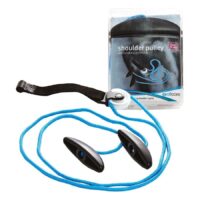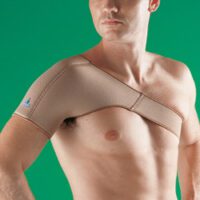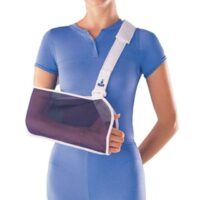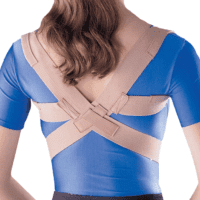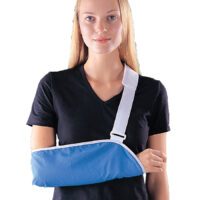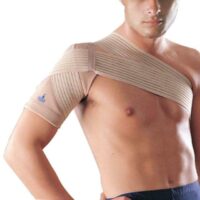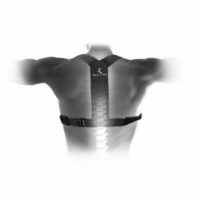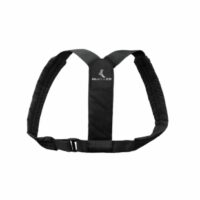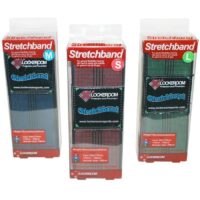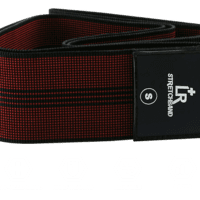Shoulder Dislocation

Managing Shoulder Dislocation and Subluxation
What is a Shoulder Dislocation?
Shoulder dislocations happen when an external force completely ejects the arm from its socket, leading to what is known as a dislocated shoulder. This injury can cause intense pain and render the arm immobile until the shoulder is realigned in the socket.
The Difference Between Dislocation and Subluxation
Shoulder dislocations occur when an external force wrenches the arm from its socket, resulting in a dislocated shoulder. This injury often causes intense pain and incapacitates the arm until it is correctly repositioned. When we talk about a shoulder dislocation, we’re referring to the complete removal of the arm bone from the shoulder socket.
In contrast, a shoulder subluxation is a less severe form of joint distruption. Here, the arm bone partially exits the joint but then snaps back into place. While it may not be as severe as a full dislocation, subluxation still requires medical attention.
What Causes a Dislocated Shoulder?
Trauma, such as a fall or a direct blow to the shoulder, often leads to a dislocated shoulder. However, inherent instability within the shoulder joint can also be a culprit. The shoulder is famed for its range of motion, the most extensive in the body, which unfortunately makes it vulnerable to dislocation.
Classifying Shoulder Dislocation
There are several types of dislocated shoulders, with anterior shoulder dislocation being the most prevalent. This type often results from an arm being rotated or lifted forcefully, as seen in sports like rugby or from an awkward fall.
Posterior shoulder dislocation is rarer and typically occurs from an arm being forced backward, as might happen during a seizure or a car accident.
Multi-Directional Instability (MDI) is another type, often due to ligament laxity and can be either inherited or due to repetitive stress from activities like swimming or cricket.
Shoulder Dislocation Symptoms

The symptoms of a dislocated shoulder are unmistakable. Individuals report a “popping out” sensation or a visible deformity of the shoulder. In the case of subluxation, the shoulder might feel as if it’s shifting or briefly popping out of joint. Common signs include:
- Pain in the shoulder
- The shoulder appearing out of place or visibly deformed
- Recurrent instances of the shoulder ‘giving way’
- A persistent feeling of the shoulder being loose or unstable
- Numbness or weakness in the arm
Diagnosing Shoulder Dislocations
Diagnosing a dislocated shoulder involves a thorough discussion of symptoms and injury history, followed by a physical examination. Healthcare professionals may also request imaging tests, such as X-rays, MRIs, or MRAs, to confirm the diagnosis and identify any concurrent issues, such as fractures or ligament tears.
Bankart Lesion & Hills-Sach Fractures
When a shoulder dislocates, it can stretch or tear the capsular ligaments, leading to a Bankart lesion, which involves a tear in the shoulder’s labrum. A Hills-Sach fracture, another possible injury, is a depression fracture in the humeral head caused by impact with the rim of the shoulder socket.
Dislocated Shoulder Treatment
Treatment for shoulder instability is multi-phased, beginning with joint reduction to ensure the nerves and blood supply to the shoulder are intact. Pain relief and joint protection follow, often using a sling. As the healing process advances, restoring muscle control and joint motion becomes the focus. A graded return to sport and function is the final goal, with ongoing strength and control exercises to forestall future dislocations.
Without surgery, especially in younger individuals, the likelihood of a shoulder dislocation recurring is high. As high as 95%! Post-surgery, most patients return to their sport after several months. With non-operative treatments, a return could be possible within 3-4 weeks, albeit with a higher recurrence risk.
Shoulder Stabilisation Surgery
Surgical stabilisation is sometimes necessary after a dislocation to repair damaged ligaments, the glenoid labrum and to prevent future dislocations. Surgery can significantly reduce the risk of recurrence, with success influenced by factors like age, activity level, and sports participation.
Post-Shoulder Stabilisation Surgery Physiotherapy Rehabilitation
Following shoulder stabilisation surgery, physiotherapy plays a pivotal role in ensuring a successful recovery. The rehabilitation process typically begins with the patient in a sling for several weeks. In the initial stages, the focus is on protecting the surgical repair and managing pain.
As healing progresses, exercises gradually become more advanced, aiming to strengthen the shoulder muscles, particularly the rotator cuff and scapular stabilisers. This helps in regaining full shoulder function and mobility.
Physiotherapists also provide guidance on proper posture and shoulder mechanics to prevent future injuries. It’s vital to follow a tailored exercise program and adhere to the physiotherapist’s advice for optimal recovery and to reduce the risk of re-injury. Regular follow-up appointments are crucial to monitor progress and adjust the rehabilitation plan as needed.
Most post-stabilisation rehabilitation sees a return to most activities at approximately 6 months, but time frames vary significantly, so please be guided by your surgeon and physiotherapist.
Conclusion
In conclusion, whether it’s a complete dislocation or a subluxation, a shoulder injury demands prompt and effective management. Surgical and non-surgical treatments are both viable paths to recovery, depending on the individual case. Tailored physiotherapy programs play a crucial role in rehabilitation and in reducing the risk of re-injury.
Our physiotherapy team is well-equipped with the knowledge to guide patients through their recovery journey, ensuring the best possible outcome and a safe return to daily activities or sports. If you’re grappling with a dislocated shoulder or shoulder subluxation, book an appointment with PhysioWorks for professional assessment and treatment is the first step towards regaining full shoulder function and stability.
Related Articles
- Functional Shoulder Instability: This piece focuses on chronic instability in the shoulder, a condition that often leads to recurrent subluxations and dislocations.
- Physiotherapy for Shoulder Pain: This article offers a comprehensive overview of various shoulder conditions and how physiotherapy can help in their management. It’s highly relevant for readers seeking broader knowledge on shoulder health.
- Broken Shoulder: Here, you can learn about the implications of a broken shoulder and related conditions like shoulder arthritis and adhesive capsulitis. It’s useful for readers wanting to understand more about serious shoulder injuries and their treatments.
- Post-Operative Shoulder Rehabilitation: Essential reading for anyone undergoing shoulder surgery, this article outlines the rehabilitation process, offering insights into recovery exercises and therapies.
- AC Joint Injury: This article discusses injuries to the acromioclavicular joint, a common issue for athletes and those who have suffered falls. It adds another dimension to the understanding of shoulder injuries.
- Shoulder Arthritis: Discussing degenerative joint disease in the shoulder, this article is useful for those interested in chronic shoulder conditions.
- Rotator Cuff Tear: This article will discuss rotator cuff tears, which involve damage to the rotator cuff muscles, a common issue resulting from injury or wear over time. It’s a crucial read for anyone interested in understanding one of the most common causes of shoulder pain and dysfunction, especially relevant for those who have experienced a shoulder dislocation or subluxation, as these conditions can impact the rotator cuff.
Rochedale - Call 38410277
Book Online: RochedaleSalisbury - Call 32751044
Book Online: SalisburySandgate - Call 32691122
Book Online: SandgateArticle by John Miller
What are the Common Causes of Shoulder Pain?
Shoulder pain is a widespread issue that can significantly affect your daily activities. Whether it's due to an injury, overuse, or an underlying condition, identifying the root cause is crucial for effective treatment and recovery. This FAQ page aims to address the most common causes of shoulder pain and guide you towards the next steps for managing your symptoms.
Why Does Shoulder Pain Occur?
Shoulder pain can arise from various conditions and injuries, each affecting different parts of the shoulder joint and surrounding tissues. Understanding the cause of your shoulder pain is essential to finding the right treatment. The common causes include:
Rotator Cuff Issues
The rotator cuff stabilises your shoulder, but it’s prone to injury, especially with repetitive movements.
- Rotator Cuff Injury: Typically results from repetitive overhead activities, causing pain and weakness. Learn more about rotator cuff injuries.
- Rotator Cuff Tendinopathy: Involves inflammation or damage to the tendons, leading to reduced mobility. Explore rotator cuff tendinopathy.
- Rotator Cuff Tear: Often due to injury or age-related wear, resulting in severe pain and limited function. Understand rotator cuff tears.
Shoulder Impingement and Related Conditions
Shoulder impingement occurs when tendons are pinched, leading to pain during arm movements.
- Shoulder Impingement Syndrome: A condition where tendons are compressed, causing pain and limited mobility.
- Shoulder Bursitis: Inflammation of the bursa in the shoulder, leading to pain.
- Swimmer’s Shoulder: Common in swimmers, this overuse injury causes impingement symptoms.


How Does Shoulder Pain Develop?
Shoulder pain can develop gradually or suddenly, depending on the cause. Chronic conditions often lead to stiffness and limited movement, while acute injuries might cause immediate pain. Common conditions include:
Frozen Shoulder (Adhesive Capsulitis)
A condition causing stiffness and pain, often developing slowly.
- Adhesive Capsulitis / Frozen Shoulder: Gradual onset of stiffness and pain, often without a specific cause.
- Shoulder Arthritis: Degenerative joint disease leading to pain and stiffness.
Shoulder Instability
Instability in the shoulder can result in recurrent dislocations or subluxations, causing ongoing pain.
- Shoulder Dislocation: Occurs when the joint is forced out of position.
- Functional Shoulder Instability: Chronic instability leading to recurrent issues.
What Should You Do Next?
If you’re experiencing shoulder pain, the best course of action is to seek advice from a physiotherapist or doctor. They can provide a thorough assessment and develop a personalised treatment plan. This might include exercises, manual therapy, or even surgery if necessary.
Post-Operative Shoulder Rehabilitation
Recovery after shoulder surgery is crucial to regain full function.
- Subacromial Decompression: A procedure to relieve impingement symptoms.
- Rotator Cuff Repair: Surgical repair to address torn rotator cuff muscles.
- Post-Operative Shoulder Rehabilitation: Tailored exercises to aid recovery after surgery.
Read more: Post-op Shoulder Rehab
Conclusion
Shoulder pain doesn’t have to control your life. By identifying the underlying cause and seeking appropriate treatment, you can effectively manage your pain and regain your quality of life. Consulting a physiotherapist or doctor is the best way to start your journey towards recovery.
Rochedale - Call 38410277
Book Online: RochedaleSalisbury - Call 32751044
Book Online: SalisburySandgate - Call 32691122
Book Online: SandgateShoulder Pain FAQS
- Why does my shoulder hurt when I lift my arm?
Lifting your arm can pinch tendons or muscles, often due to shoulder impingement or rotator cuff issues. - How can I treat shoulder pain at home?
Rest, ice, and gentle stretching can help, but professional assessment is recommended for persistent pain. - What are the signs of a rotator cuff tear?
A rotator cuff tear typically causes pain, weakness, and difficulty lifting your arm above your head. - Where can I get treatment for shoulder pain?
Consult a physiotherapist for a tailored treatment plan that may include exercises, manual therapy, or surgery. - When should I see a doctor for shoulder pain?
See a doctor if you experience severe pain, sudden inability to move your shoulder, or if the pain persists despite rest. - What is the most common cause of shoulder pain?
Rotator cuff injuries are the most common cause, often resulting from repetitive overhead activities.
Related Articles
- Rotator Cuff Injury: Causes and Treatment
Explore the common causes and treatment options for rotator cuff injuries. - Shoulder Impingement Syndrome: Symptoms and Recovery
Learn about the symptoms and how to recover from shoulder impingement. - Frozen Shoulder: What You Need to Know
Understand the signs and treatments for frozen shoulder. - Shoulder Arthritis: Managing Pain and Stiffness
Discover ways to manage the pain and stiffness associated with shoulder arthritis. - Shoulder Dislocation: Treatment and Prevention
Learn how to treat and prevent shoulder dislocations. - Post-Operative Shoulder Rehabilitation
Find out what to expect during post-operative rehabilitation for shoulder surgery. - AC Joint Injury: Causes and Treatment
Understand the causes and treatment options for AC joint injuries. - Biceps Tendinopathy: Symptoms and Treatment
Learn about the symptoms and treatment of biceps tendinopathy. - Shoulder Bursitis: Causes and Treatment
Explore the causes and treatment options for shoulder bursitis. - Shoulder Pain: Causes, Treatments, and When to See a Doctor
Discusses various causes of shoulder pain and when you should consult a doctor. - Shoulder Pain: Diagnosis and Treatment
Offers an in-depth look at the diagnosis and treatment of shoulder pain. - Understanding Shoulder Pain and Its Treatments
Explains shoulder pain causes and treatment options, including when surgery is necessary.
Shoulder Pain FAQs
Your Comprehensive Guide to Understanding and Managing Shoulder Injuries
Welcome to the "Shoulder Pain FAQs" page, your go-to resource for understanding various aspects of shoulder pain, injuries, and how to manage them effectively. The shoulder is a complex joint that allows for a wide range of movements, but it is also susceptible to various injuries and conditions that can cause discomfort and limitations in daily activities.
In this comprehensive guide, we will explore the most common shoulder injuries, their causes, and how to identify and treat them. We'll also address frequently asked questions about specific shoulder conditions, providing you with valuable insights into your shoulder health.


When Should You Worry About Shoulder Pain?
Shoulder pain can be caused by numerous factors, ranging from minor strains to more severe injuries. Knowing when to seek medical attention is crucial to prevent further damage and facilitate timely recovery.
Common Shoulder Injuries
We'll swing into the most prevalent shoulder injuries, shedding light on their causes, symptoms, and appropriate treatment options.
More info: Common Shoulder Injuries
What Causes Shoulder Pain?
Understanding the root causes of shoulder pain is fundamental to addressing the issue effectively. We'll explore the various factors that can lead to shoulder discomfort and how to mitigate them.
More info: What Causes Shoulder Pain?
What is Your Scapulohumeral Rhythm?
The scapulohumeral rhythm plays a vital role in shoulder function and movement. We'll explain what it is and its significance in maintaining a healthy shoulder.
More info: What is Your Scapulohumeral Rhythm?
Rotator Cuff: An In-Depth Analysis
The rotator cuff is a critical group of muscles and tendons in the shoulder. We'll dive into its anatomy, functions, and common problems associated with it.
More info: Rotator Cuff: An In-Depth Analysis
How Can You Tell If You Have Torn Your Rotator Cuff?
Identifying a torn rotator cuff can be challenging, but we'll provide you with essential signs to look out for and when to seek professional evaluation.
More info: How Can You Tell If You Have Torn Your Rotator Cuff?
Can You Diagnose A Torn Rotator Cuff Without An MRI?
Find out about diagnostic methods for a torn rotator cuff, including whether an MRI is always necessary for accurate diagnosis.
More info: Can You Diagnose A Torn Rotator Cuff Without An MRI?
Can You Lift Your Arm With A Rotator Cuff Tear?
Discover the limitations and challenges you may face if you have a torn rotator cuff and how to manage arm movement during the healing process.
More info: Can You Lift Your Arm With A Rotator Cuff Tear?
Will Your Shoulder Blade Hurt With A Torn Rotator Cuff?
Learn about the possible relationship between a torn rotator cuff and shoulder blade pain, and what it indicates about your shoulder health.
More info: Will Your Shoulder Blade Hurt With A Torn Rotator Cuff?
Will A Cortisone Injection Help A Torn Rotator Cuff?
Cortisone injections are sometimes used for shoulder pain, but their effectiveness in treating a torn rotator cuff is a point of interest we'll explore.
More info: Will A Cortisone Injection Help A Torn Rotator Cuff?
How Can You Make Your Rotator Cuff Heal Faster?
We'll provide practical tips and strategies to aid in the healing process of a torn rotator cuff and restore shoulder function more rapidly.
More info: How Can You Make Your Rotator Cuff Heal Faster?
Shoulder Bursitis: Understanding the Condition
What is shoulder bursitis, and how does it differ from other shoulder injuries? Get insights into this inflammatory condition and how to manage it.
More info: Shoulder Bursitis: Understanding the Condition
Shoulder Impingement: Causes and Solutions
Understand the concept of the shoulder impingement zone and the factors contributing to rotator cuff impingement and bursitis.
More info: Shoulder Impingement: Causes and Solutions
Frozen Shoulder: Overcoming the Stiffness
Discover how to unfreeze a frozen shoulder and regain a full range of motion through effective therapeutic approaches.
More info: Frozen Shoulder: Overcoming the Stiffness
Shoulder Dislocation/Instability: Seeking Stability
Explore the causes of shoulder dislocation and instability, and the fastest ways to promote healing and prevent future occurrences.
More info: Shoulder Dislocation/Instability: Seeking Stability
Can You Fix Shoulder Instability?
Find out about treatment options to address shoulder instability and regain stability in the joint.
More info: Can You Fix Shoulder Instability?
AC Joint: Identifying and Managing Injuries
Learn how to recognise an injured AC joint and what steps to take for proper care and recovery.
More info: AC Joint: Identifying and Managing Injuries
Swimmers Shoulder: Causes and Remedies
If you're a swimmer or engage in repetitive overhead activities, understanding the causes of swimmer's shoulder and how to prevent it is essential.
More info: Swimmers Shoulder: Causes and Remedies
We hope this comprehensive guide will prove invaluable in your journey to understand and manage shoulder pain and injuries. However, it's essential to consult a healthcare professional for personalised advice and treatment based on your specific condition. Let's dive into the world of shoulder health together!















